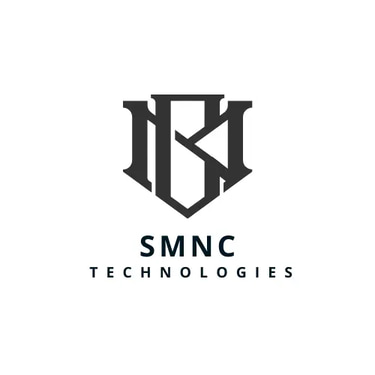The HR Tech Revolution: Leveraging Technology to Optimize HR Processes
HUMAN RESOURCE TIPS
2/7/20244 min read


In today's fast-paced digital world, technology has become an integral part of every aspect of our lives. From ordering groceries to managing finances, technology has revolutionized the way we live and work. The Human Resources (HR) department is no exception. With the advent of HR tech, organizations are now able to optimize their HR processes and improve overall efficiency.
The Benefits of HR Tech
HR tech refers to the use of technology to streamline and automate HR processes, such as recruitment, onboarding, performance management, and employee engagement. By leveraging HR tech, organizations can benefit in several ways:
1. Improved Efficiency
HR tech enables HR professionals to automate time-consuming tasks, such as resume screening and interview scheduling. This allows them to focus on more strategic initiatives, such as talent development and succession planning. By reducing manual work, HR tech improves overall efficiency and productivity.
2. Enhanced Decision-Making
HR tech provides HR professionals with access to real-time data and analytics. This enables them to make data-driven decisions and identify trends and patterns within their workforce. By having access to accurate and up-to-date information, HR professionals can make informed decisions that drive business growth.
3. Improved Candidate Experience
Recruitment is a critical process for any organization. HR tech tools, such as applicant tracking systems (ATS) and video interviewing platforms, can enhance the candidate experience. These tools allow candidates to easily apply for positions and provide a seamless and personalized recruitment experience.
4. Enhanced Employee Engagement
Employee engagement is crucial for organizational success. HR tech tools, such as employee self-service portals and mobile apps, enable employees to access information, submit requests, and provide feedback easily. This fosters a culture of transparency and empowers employees to take ownership of their HR-related tasks.
Popular HR Tech Solutions
There are numerous HR tech solutions available in the market today. Here are some of the most popular ones:
1. Applicant Tracking Systems (ATS)
ATS streamlines the recruitment process by automating tasks such as resume screening, interview scheduling, and candidate communication. It helps HR professionals manage the entire recruitment process more efficiently and effectively.
2. Learning Management Systems (LMS)
LMS enables organizations to deliver and track employee training and development programs. It provides a centralized platform for creating, managing, and delivering online courses, ensuring employees have access to relevant training materials.
3. Performance Management Systems
Performance management systems automate the performance review process, making it easier for HR professionals to track employee performance, set goals, and provide feedback. These systems also facilitate ongoing performance conversations and enable managers to provide timely coaching and support.
4. Employee Engagement Platforms
Employee engagement platforms help organizations measure and improve employee engagement. These platforms often include features such as pulse surveys, recognition programs, and social collaboration tools, fostering a positive and inclusive work environment.
5. HR Analytics Tools
HR analytics tools provide HR professionals with insights into workforce trends, enabling them to make data-driven decisions. These tools help identify areas for improvement, predict future workforce needs, and measure the impact of HR initiatives.
Implementing HR Tech
Implementing HR tech requires careful planning and consideration. Here are some key steps to follow:
1. Assess Your Needs
Start by identifying the HR processes that could benefit from automation or improvement. Assess your current systems and identify any gaps or pain points that HR tech could address.
2. Research and Evaluate
Research different HR tech solutions and evaluate them based on your organization's specific needs. Consider factors such as functionality, ease of use, scalability, and integration capabilities.
3. Pilot and Test
Before implementing HR tech across the entire organization, consider piloting the solution with a small group of users. This allows you to test the system, gather feedback, and make any necessary adjustments before rolling it out company-wide.
4. Train and Educate
Provide comprehensive training and support to HR professionals and employees who will be using the new technology. This ensures a smooth transition and maximizes the benefits of HR tech.
5. Monitor and Evaluate
Regularly monitor and evaluate the effectiveness of the HR tech solution. Collect feedback from users and analyze key metrics to ensure the technology is delivering the desired outcomes.
The Future of HR Tech
The HR tech landscape is constantly evolving, driven by advancements in technology and changing workforce dynamics. Here are some trends that are shaping the future of HR tech:
1. Artificial Intelligence (AI)
AI is revolutionizing HR tech by automating repetitive tasks, improving data analysis capabilities, and enabling more personalized employee experiences. AI-powered chatbots, for example, can provide instant support to employees, answering their HR-related queries.
2. Predictive Analytics
Predictive analytics uses historical data and statistical algorithms to predict future outcomes. In HR, predictive analytics can help identify flight risks, forecast workforce needs, and optimize talent acquisition and retention strategies.
3. Remote Work Tools
The COVID-19 pandemic has accelerated the adoption of remote work tools. HR tech solutions that facilitate remote collaboration, communication, and performance management are becoming increasingly important.
4. Employee Well-being and Mental Health
Organizations are recognizing the importance of employee well-being and mental health. HR tech solutions that focus on employee wellness, such as mindfulness apps and virtual wellness programs, are gaining popularity.
In conclusion, HR tech is revolutionizing the way HR processes are managed. By leveraging technology, organizations can optimize their HR processes, improve efficiency, enhance decision-making, and foster employee engagement. Implementing HR tech requires careful planning and consideration, but the benefits far outweigh the initial investment. As technology continues to evolve, the future of HR tech looks promising, with AI, predictive analytics, remote work tools, and employee well-being taking center stage.
Contact us
info@smnctechnologies.com
Socials
Subscribe to our Newsletter
+91-844-976-8877
Copyright © 2024 SMNC Technologies
